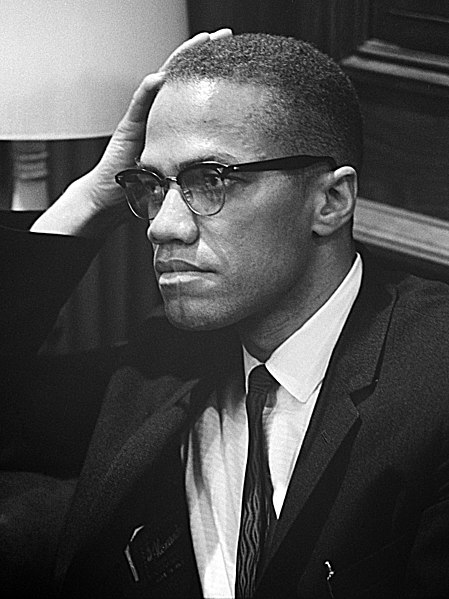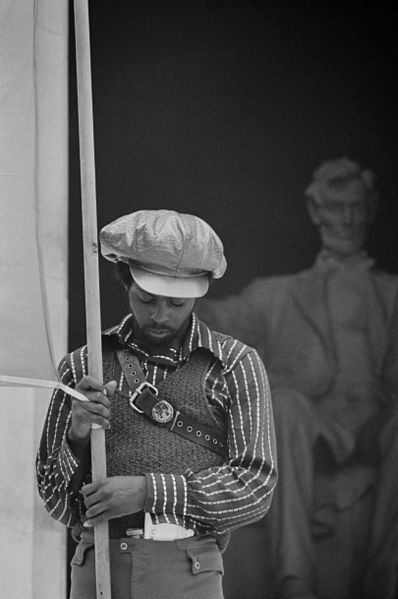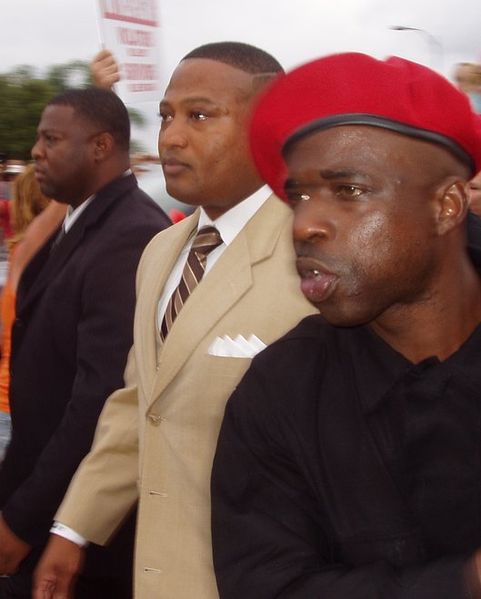Black nationalism is a nationalist movement which seeks liberation, equality, representation and/or self-determination for black people as a distinct national identity, especially in racialized, colonial and postcolonial societies. Its earliest proponents saw it as a way to advocate for democratic representation in culturally plural societies or to establish self-governing independent nation-states for black people. Modern black nationalism often aims for the social, political, and economic empowerment of black communities within white majority societies, either as an alternative to assimilation or as a way to ensure greater representation and equality within predominantly Eurocentric or white cultures.
1964 photograph of Malcolm X
1924 photograph of Marcus Garvey
The black power movement or black liberation movement was a branch or counterculture within the civil rights movement of the United States, reacting against its more moderate, mainstream, or incremental tendencies and motivated by a desire for safety and self-sufficiency that was not available inside redlined African American neighborhoods. Black power activists founded black-owned bookstores, food cooperatives, farms, media, printing presses, schools, clinics and ambulance services.
Black Panther at the Lincoln Memorial in Washington, June 1970
Black Panther Party members marching and carrying flags.
Protesters demanding the release of Angela Davis.
New Black Panther Party members marching in 2007






